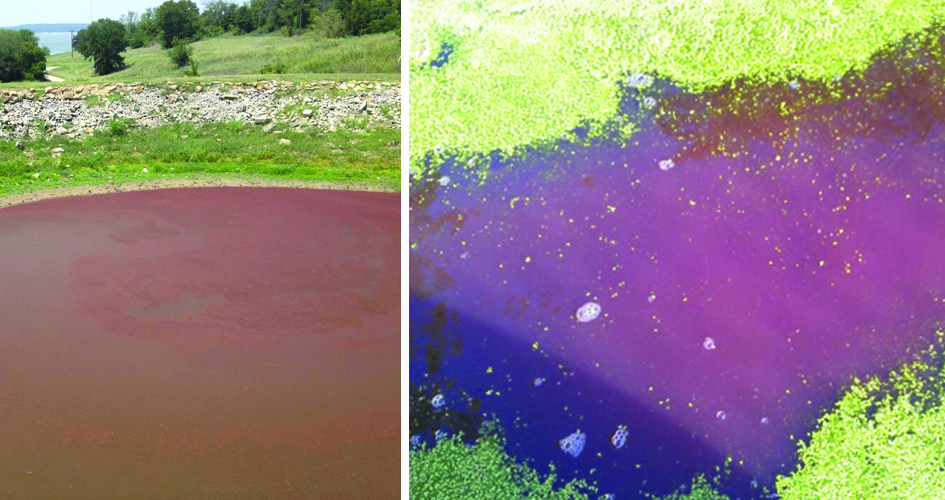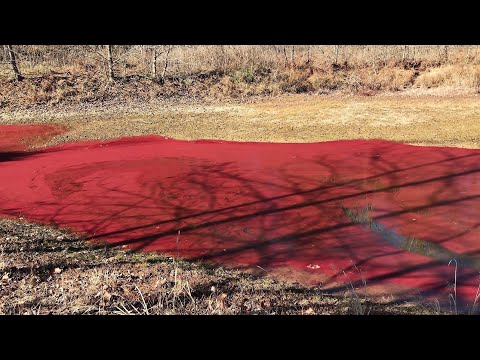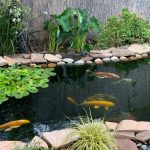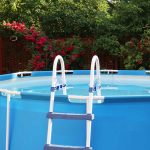Red algae, also known as red slime algae, can be a common problem in ponds and water features. It can quickly overtake your pond, turning the water a reddish or pinkish color and affecting the health of your aquatic plants and fish. If you’re dealing with red algae in your pond, don’t worry! There are several effective methods to treat and prevent its growth. In this article, we’ll explore some of the best ways to tackle red algae and restore the balance in your pond.
Identifying Red Algae
Before you can effectively treat red algae in your pond, it’s important to correctly identify it. Red algae typically appear as slimy, reddish or pinkish patches that can cover rocks, plants, and other surfaces in your pond. It thrives in warm, nutrient-rich water and can quickly multiply if left unchecked. Red algae can also create an unpleasant odor and negatively impact the overall aesthetics of your pond.
5 Best Pond Cleaner For Red ALgae – Muck, Algae, And Sludge Remover
Treating Red Algae
Once you’ve identified red algae in your pond, it’s time to take action. Here are some effective methods to treat red algae:
1. Manual Removal
One of the simplest ways to tackle red algae is by manually removing it from your pond. Use a brush or scrubbing pad to gently scrub away the algae from rocks, plants, and other surfaces. Be sure to wear gloves to protect your hands and avoid coming into direct contact with the algae.
2. Water Changes
Regular water changes can help dilute the nutrient levels in your pond, making it less hospitable for red algae to thrive. Consider replacing a portion of the water in your pond regularly to help control algae growth.
3. Use Of Algaecides
There are several algaecides available on the market that are specifically designed to target and eliminate red algae. Be sure to follow the manufacturer’s instructions carefully when using algaecides to ensure the safety of your fish and plants.
4. Uv Sterilizers
UV sterilizers can be an effective tool for controlling red algae growth in your pond. These devices use ultraviolet light to kill algae cells and prevent them from reproducing. Consider installing a UV sterilizer in your pond for long-term algae control.
5. Beneficial Bacteria
Introducing beneficial bacteria into your pond can help to establish a healthy microbial balance, making it more difficult for red algae to take hold. Look for bacterial products specifically formulated for pond use and follow the recommended dosage instructions.
Preventing Red Algae
While treating red algae is important, preventing its return is equally crucial. Here are some tips to help prevent red algae from reappearing in your pond:
1. Proper Filtration
Invest in a high-quality filtration system for your pond to help remove excess nutrients and debris that can fuel red algae growth. Regularly clean and maintain your filter to ensure optimal performance.
2. Adequate Circulation
Proper water circulation is essential for preventing stagnant areas where red algae can flourish. Consider adding a fountain, waterfall, or aerator to keep the water moving and well-oxygenated.
3. Shade Your Pond
Excessive sunlight can promote algae growth, including red algae. Consider adding aquatic plants or installing a shade sail to provide some shade and reduce the intensity of sunlight reaching your pond.
4. Avoid Overfeeding Fish
Uneaten fish food can contribute to excess nutrients in your pond, creating an ideal environment for red algae to grow. Feed your fish only what they can consume in a few minutes to prevent overfeeding.
5. Regular Maintenance
Regularly inspect and maintain your pond to catch any early signs of red algae growth. Remove debris, dead plants, and excess algae to help keep your pond healthy and balanced.

Credit: www.sancoind.com
Conclusion
Dealing with red algae in your pond can be a challenging task, but with the right approach and techniques, you can effectively treat and prevent its growth. By following the methods outlined in this article, you can restore the beauty and health of your pond and create a thriving aquatic ecosystem for your plants and fish. Remember to stay proactive in maintaining your pond to prevent red algae from becoming a recurring issue. With patience and diligence, you can enjoy a clear and algae-free pond for years to come.





